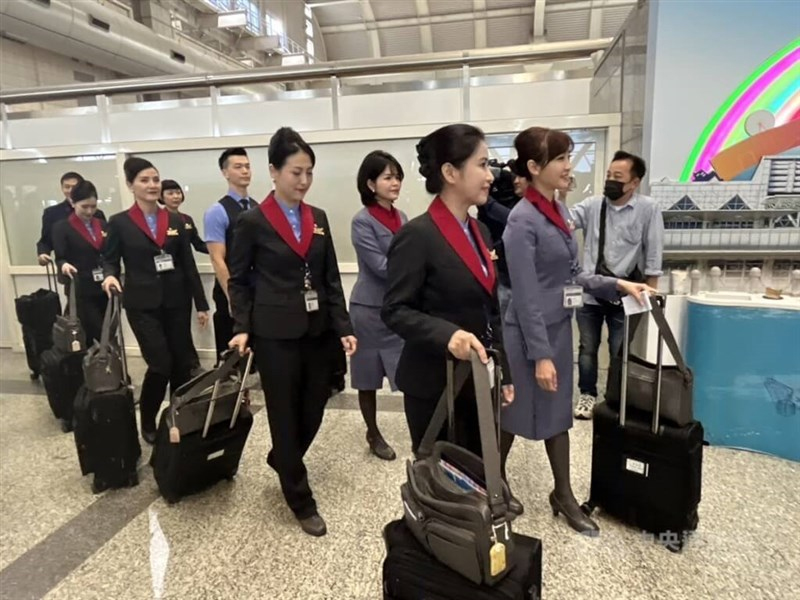In a landmark move to promote gender equality at work, Taiwan’s Ministry of Labor (MOL) has issued new guidelines mandating airlines to offer trousers as a standard uniform option for female flight attendants. This policy comes after growing public pressure and a 2023 National Human Rights Commission (NHRC) report, which concluded that enforcing skirts, heels, and makeup requirements on women violated international human rights standards.
The MOL’s updated directive is seen not just as a domestic labor reform, but as part of a larger global trend toward eliminating gender-based discrimination in industries traditionally shaped by rigid, outdated norms.
Background: Why Change Was Needed
Taiwan’s aviation industry, like many others globally, historically required female flight attendants to wear skirts, heels, and makeup — standards that many criticized as outdated and discriminatory.
In 2023, the NHRC investigated uniform policies across Taiwanese airlines and found these requirements were in violation of the Convention on the Elimination of All Forms of Discrimination Against Women (CEDAW), an international treaty ratified by Taiwan. The report emphasized that enforcing such gender-specific rules placed unnecessary physical burdens on women and infringed upon their right to personal dignity and equality.
The NHRC urged airlines to:
- Eliminate dress codes based on gender stereotypes.
- Offer practical uniform options.
- Consult workers and unions when revising dress policies.
Key Points of the New Ministry of Labor Guidelines
- Mandatory Trouser Option:
All airlines must now allow female flight attendants to choose trousers as a uniform option, ensuring freedom and comfort. - Ban on Gender-Specific Appearance Requirements:
Airlines are prohibited from mandating makeup, high heels, or other gender-specific requirements unless applied equally to all genders. - Inclusive Policy-Making:
Airlines are encouraged to consult labor unions or organize discussions between management and employees when drafting or changing uniform policies. - Non-Discrimination in Recruitment:
Employers are barred from asking new applicants to choose their preferred uniform (skirt or trousers) during the hiring process to avoid potential bias. - Penalties for Violations:
Airlines enforcing discriminatory dress codes could face penalties under Taiwan’s Gender Equality in Employment Act, depending on the severity of the breach.
How Taiwan’s Major Airlines Are Responding
Taiwanese carriers have started implementing the changes even before the formal guidelines:
- China Airlines (CAL):
Announced that female flight attendants can freely choose between skirts and trousers depending on personal preference or job needs starting this year. - EVA Airways and UNI Air:
Updated their policies recently to provide trousers as an alternative, following international standards. - Starlux Airlines:
Added trousers as an option in 2023, positioning themselves as a more progressive, employee-friendly airline. - Tigerair Taiwan:
Stood out earlier as the first and, for a time, the only Taiwanese airline offering trousers by default for female cabin crew.
These actions show Taiwan’s aviation industry catching up to global practices seen in airlines like Virgin Atlantic (UK) and United Airlines (USA), where dress codes have become increasingly gender-neutral in recent years.
The Bigger Picture: Why This Matters
Taiwan’s new guidelines reflect a larger cultural and economic shift:
- Worker Welfare:
Practical uniform choices help prevent health issues, such as back problems from heels and circulation issues from tight skirts. - Gender Equality:
Breaking down stereotypical gender roles contributes to more inclusive workplaces, enhancing employee satisfaction and retention. - Corporate Image:
Airlines that adopt fair, progressive policies are increasingly viewed more favorably by global passengers who value ethical labor practices. - Global Standards:
As Taiwan continues to position itself as a global business and tourism hub, aligning labor practices with international human rights standards strengthens its international reputation.
FAQs
Why was the previous dress code considered discriminatory?
The requirement for skirts, heels, and makeup was applied only to women, reinforcing outdated gender norms and creating unequal physical burdens, which violated international human rights treaties.
Can airlines still require a uniform standard?
Yes, airlines can maintain professional standards but must offer equal options (such as trousers and skirts) without making gender-specific demands.
What penalties could airlines face for non-compliance?
Airlines violating the new guidelines may face fines or other actions under Taiwan’s Gender Equality in Employment Act.
Are there international examples of similar policies?
Yes, airlines like Virgin Atlantic, United Airlines, and Japan Airlines have introduced gender-neutral uniform policies in recent years.
How does this change benefit airlines?
More inclusive dress codes improve employee satisfaction, reduce turnover, and enhance the company’s global reputation for ethical practices.


